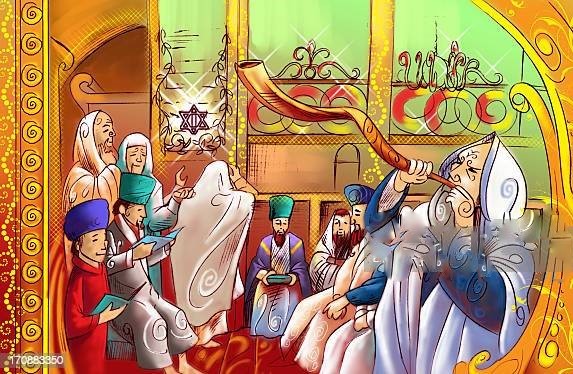📖 SATURDAY PRAYER: MALCHUT-YESHIVAT HAVERIM יְשִׁיבָה חברים – BABYLONIAN TALMUD p174

READING: BETWEEN MIDNIGHT AND DAWN OF SATURDAY
MISHNA III.: One who carries out anything in the right or in the left hand or in his bosom or on
his shoulder is culpable, as so was the manner in which the sons of Kehath carried (their
burdens). 1 But one who carries out a thing on the back of his hand or with his foot, with his
mouth, with his elbow, with his ear, with his hair, with his waist bag, the opening of which is at
the bottom, or between his belt and his shirt, with the edge of his shirt, with his shoe or sandal,
is not culpable, because he carries it in an unusual manner.
GEMARA: R. Elazar said: “One who carries out a burden ten spans above the ground [not on
his shoulder, but in the air] is culpable, because in this manner the sons of Kehath carried their
burdens.” Whence do we know that the sons of Kehath carried their burdens in this way? It is
written [Numb. iii. 26]: “Which is by the tabernacle and by the altar round about.” Hence he
compares the tabernacle to the altar. As the tabernacle was ten ells, so was also the altar ten ells;
and whence do we know that the tabernacle itself was ten ells? Because it is written [Ex. xxvi.
16]: “Ten ells shall be the length of the boards.” Or we may say that we know that the sons of
Kehath carried their burdens in this manner from the ark, as the Master said: The ark was nine
spans high, and with the cover, which was one span higher, it was ten. Experience is to the
effect that when a burden was carried on the shoulders by means of poles, one-third of the
burden was above the poles and two-thirds below; then as the ark was ten spans high and onethird
of it was carried above the shoulders, it was certainly more than ten spans above the
ground.
But let it be inferred from Moses himself, of whom it is said elsewhere that he was very tall.
With Moses the case is different; as the Master said elsewhere that the Shekhina does not rest upon a man unless he is a scholar, a strong, rich, or tall man.